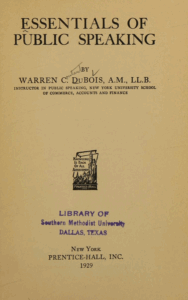Read free. Big Rock Candy Mountain, 1970. “A Learning to Learn Catalog.”
Excerpt
Everything we learn is only real to the degree that it contributes to what we are. Direct knowledge of ourselves, the reality of the world we live in, and the facilitation of our inner growth and change are the ultimate goals of education. For the most part, self-knowledge has been limited to mysticism, psychoanalysis, and various beyond-the-fringe activities, and education has been limited to a culturally determined range of ideas and techniques. We have been estranged from the knowledge of ourselves; it is no wonder that we are left empty by the present educational process both in and out of school.
The BIG ROCK CANDY MOUNTAIN seeks to aid in the acquisition of this knowledge: not by molding the learner into a pre-established pattern, but by providing resources to help him quench his thirst; not by teaching meaningless stockpiling leading to a dissatisfied life, but by encouraging growth in the present leading toward a joyous old age; not by changing people, but by awakening a desire to change. This is our motivation for doing this catalogue.
Introductory/Ending Pages
AI Summary
Publisher: Interlocking Curriculum Program, Educational Development Center (EDC)
Publication Year: 1970
Length: ~170 pages
Purpose: To provide a curated list of experimental and alternative educational materials for schools, teachers, and communities exploring innovative learning models.
Overview
This catalog, titled Big Rock Candy Mountain, compiles hundreds of nontraditional educational resources aimed at supporting creative learning and interdisciplinary education in the 1970s. The materials range from books and games to filmstrips, recordings, teaching kits, and activity manuals. It was part of a broader movement to decentralize education and encourage experiential, project-based, and child-led learning.
Content Categories
- Arts and Crafts: Hands-on kits and materials encouraging creative expression.
- Science and Environment: Innovative curricula in biology, ecology, physics, and earth science — often with a focus on experimentation and observation.
- Social Studies and Culture: Books and projects designed to expand cultural awareness and civic engagement, including materials on media, government, and anthropology.
- Language Arts and Communication: Storytelling aids, poetry games, phonics resources, and student publishing projects.
- Math and Logic: Manipulative-based and concept-driven resources that move beyond rote memorization.
- Multimedia and Interdisciplinary Tools: Filmstrips, recordings, card decks, and thematic kits spanning multiple subjects.
Notable Features
- Each entry includes a description, intended age group, subject tags, and ordering information.
- Many resources emphasize student engagement, problem-solving, and creativity over traditional testing or textbooks.
- Items were selected for their alignment with the principles of “open classrooms” and progressive education.
- Includes a unique layout using symbols and keywords to help teachers find appropriate tools quickly.
Audience
The catalog was designed for educators in experimental schools, alternative programs, community-based education, and any setting pursuing learner-centered approaches.
Historical Context
Published during a surge of educational reform in the U.S., Big Rock Candy Mountain reflects the values of the 1960s–70s counterculture: curiosity, ecological awareness, self-direction, and social consciousness. It served as both a practical catalog and an ideological guide to rethinking education from the ground up.
Conclusion
This catalog remains a rich artifact of progressive educational innovation, showcasing the breadth of tools available to educators committed to engaging students in meaningful, hands-on learning.
Related Posts

Essentials of Public Speaking

10 Years of CoEvolution Quarterly

Whole Earth Catalog










